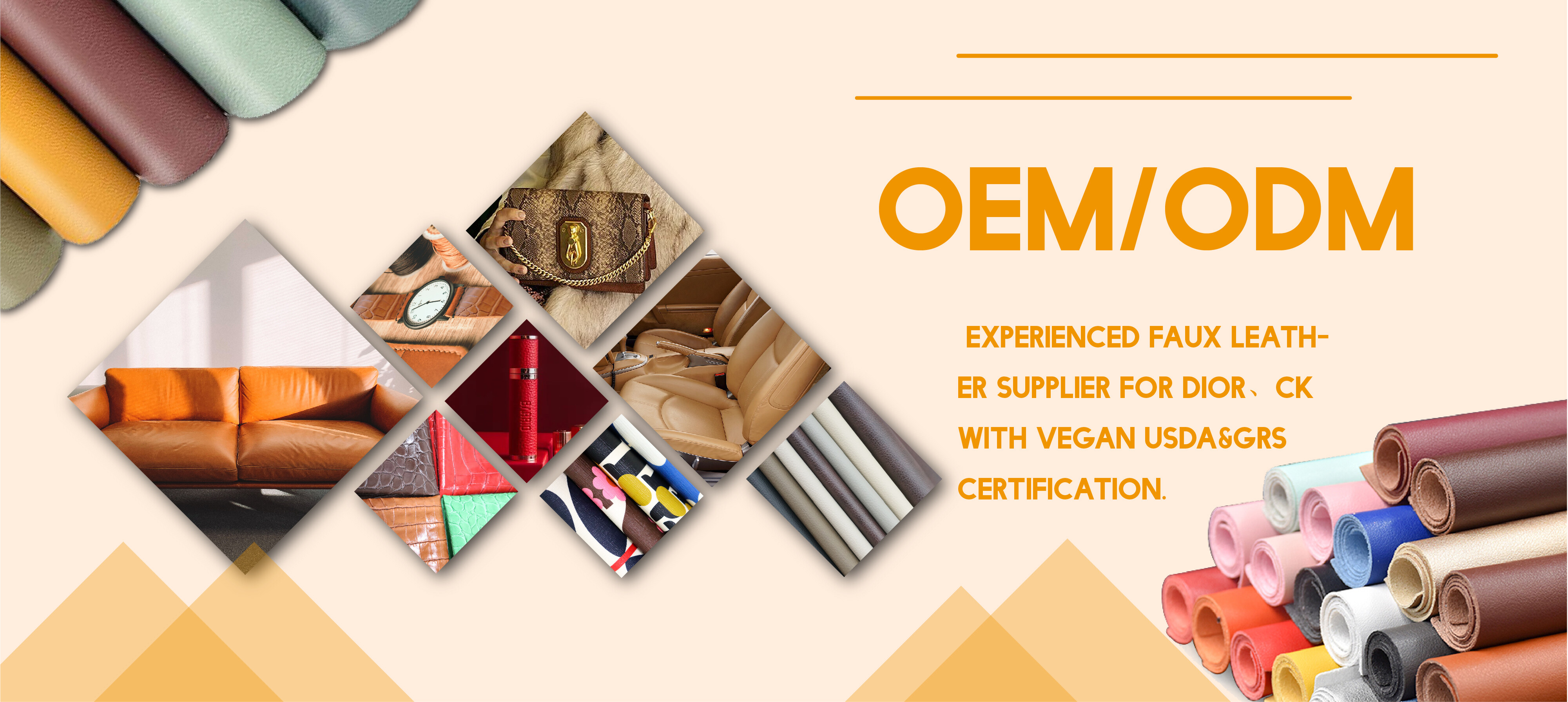Email format error
Email cannot be empty
Email already exists
6-20 characters(letters plus numbers only)
The password is inconsistent
Email format error
Email cannot be empty
Email does not exist
6-20 characters(letters plus numbers only)
The password is inconsistent

News

China's PU Artificial Leather: A Global Manufacturing Powerhouse
Introduction: The Synthetic Revolution in Leather Production
In the world of fashion, upholstery, and automotive interiors, the demand for high-quality materials that are both durable and aesthetically pleasing is ever-growing. Enter China's PU (polyurethane) artificial leather, a product that has been making waves in the global market for its innovative properties and cost-effectiveness. This blog post will explore the rise of China as a leading manufacturer of PU artificial leather, the technology behind its production, and its impact on various industries.
The Emergence of PU Artificial Leather
What is PU Artificial Leather?
PU artificial leather, often referred to as 'vegan leather' or 'faux leather,' is a versatile material made from polyurethane. It mimics the look and feel of traditional leather but is created through a synthetic process, offering a range of benefits that appeal to both environmentalists and consumers seeking a cruelty-free alternative.
The Chinese Manufacturing Advantage
China has emerged as a dominant force in the production of PU artificial leather, leveraging its manufacturing expertise, advanced technology, and competitive costs. The country's ability to produce high-quality artificial leather at scale has positioned it as a key player in the global materials market.
The Technology Behind China's PU Artificial Leather
Production Process
The production of PU artificial leather involves a complex process that starts with the application of polyurethane onto a fabric or film backing. This is followed by a series of treatments that give the material its distinctive texture and properties. The technology used in Chinese factories is at the forefront of innovation, ensuring that the final product is both durable and visually appealing.
Quality and Innovation
Chinese manufacturers are continuously investing in research and development to improve the quality of their PU artificial leather. Through advanced techniques such as microfiber layering and 3D embossing, they are able to create products that are increasingly indistinguishable from genuine leather.
Applications of PU Artificial Leather
Fashion and Accessories
The fashion industry has been quick to embrace PU artificial leather for its sustainability and versatility. It is widely used in the production of shoes, handbags, jackets, and other accessories, offering a cruelty-free option that appeals to the growing number of consumers who prioritize ethical fashion choices.
Automotive and Upholstery
The automotive sector is another major consumer of PU artificial leather, where it is used for car seats, door panels, and other interior components. Its durability, ease of cleaning, and resistance to wear make it an ideal choice for these applications.
Consumer Electronics and Packaging
In the consumer electronics market, PU artificial leather is used for product casings, providing a premium look and feel without the high cost associated with genuine leather. It is also finding use in the packaging industry for luxury goods, where its aesthetic appeal and cost-effectiveness are highly valued.
Environmental Considerations
Sustainability and Eco-Friendly Practices
One of the key selling points of PU artificial leather is its sustainability. As a synthetic material, it does not require the same resource-intensive processes as traditional leather production, making it a more environmentally friendly option. Chinese manufacturers are increasingly adopting eco-friendly practices in their production processes, further enhancing the sustainability of their products.
Animal Welfare and Ethical Consumerism
The rise of ethical consumerism has led to a growing demand for products that align with consumers' values. PU artificial leather offers a cruelty-free alternative to traditional leather, satisfying the ethical concerns of consumers who wish to avoid products derived from animal sources.
The Future of China's PU Artificial Leather Industry
Growth and Expansion
As global awareness of sustainability and animal welfare continues to grow, the demand for PU artificial leather is expected to rise. Chinese manufacturers are well-positioned to capitalize on this trend, with their ability to produce high-quality, innovative products at competitive prices.
Technological Advancements
The future of China's PU artificial leather industry lies in continued technological advancements. As manufacturers invest in new production techniques and materials, the quality and range of PU artificial leather products are set to improve, further cementing China's position as a global leader in this sector.
Conclusion: The Synthetic Silk Road
China's PU artificial leather industry is a testament to the country's manufacturing prowess and its ability to innovate and adapt to changing market demands. As the world increasingly turns towards sustainable and ethical alternatives, China's role as a leading manufacturer of PU artificial leather is only set to grow. This synthetic revolution is not just about materials; it's about meeting the needs of a global market that values quality, sustainability, and ethical production.
Final Thoughts
The rise of China as a global manufacturing powerhouse in PU artificial leather is a story of innovation, sustainability, and market responsiveness. As consumers and industries alike seek out high-quality, cruelty-free, and eco-friendly alternatives to traditional materials, China's PU artificial leather manufacturers are poised to lead the way into a more sustainable future.

